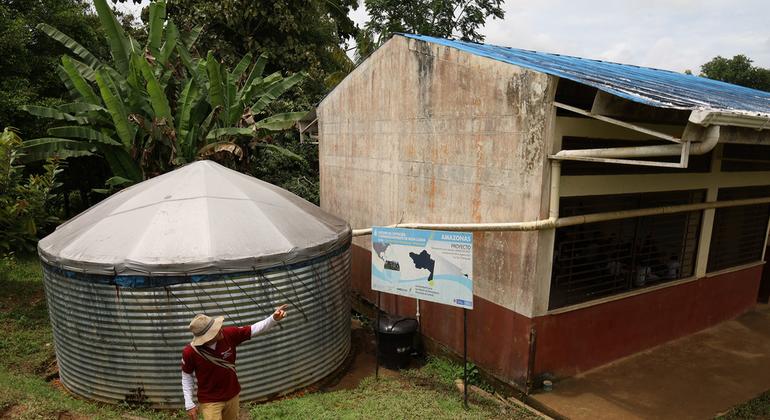Sure! Here’s the translation into American English:
—
Five years from the global deadline to achieve the Sustainable Development Goals of the United Nations’ 2023 Agenda, the world faces a complicated landscape. Climate crises, economic tensions, and a growing digital divide are exacerbating the living conditions of millions of people who still suffer from hunger and extreme poverty. Moreover, the debt pressure in many countries restricts investment in essential services such as health and education.
In this context, Triangular South-South Cooperation stands out as a hopeful alternative in Latin America and the Caribbean. This model is based on solidarity and knowledge exchange among Global South countries, providing practical solutions tailored to local realities, complementing traditional methods of development aid.
On the occasion of the United Nations Day for South-South Cooperation, celebrated on September 12, stories have been shared that demonstrate how concrete actions in international cooperation transform lives. In Colombia, an Indigenous family has restored cotton cultivation using sustainable practices. In Chile, a rural producer has modernized her business thanks to digitalization. Likewise, in the Colombian Amazon, an Indigenous community has managed to ensure access to drinking water through accessible, technology-based solutions tailored to their needs.
The emerging narratives highlight the positive impact of these cooperation projects. In Coyaima, Tolima, the Timote Chila family, Pijao Indigenous farmers, found in cotton cultivation a way to revitalize their culture and improve their quality of life. By participating in the +Cotton Colombia project, an initiative of cooperation between the FAO and the Brazilian government, they have merged ancestral knowledge with innovative agricultural practices. As a result, they not only doubled their production but also strengthened their food security and motivated other farmers to reactivate cotton cultivation.
In the Colombian Amazon jungle, access to drinking water represented a significant challenge. However, in the Indigenous community of Zaragoza, a program by the FAO and the Mexican Agency for International Cooperation has enabled the installation of rainwater harvesting systems, benefiting numerous families and reinforcing the community’s autonomy.
In the Ñuble region of Chile, Ana María Rabanal, a rural producer, has transformed her situation through a digitalization project that has allowed her to market her products online. This access to digital tools has expanded her market, improving her quality of life and integrating agricultural traditions with new technologies.
These stories illustrate that South-South and triangular cooperation are not just mechanisms for collaboration between countries but also critical tools for fostering innovation and resilience in communities. By uniting resources and knowledge, we move toward a more equitable and sustainable future, contributing to the goal of eradicating hunger in the world.
via: MiMub in Spanish











